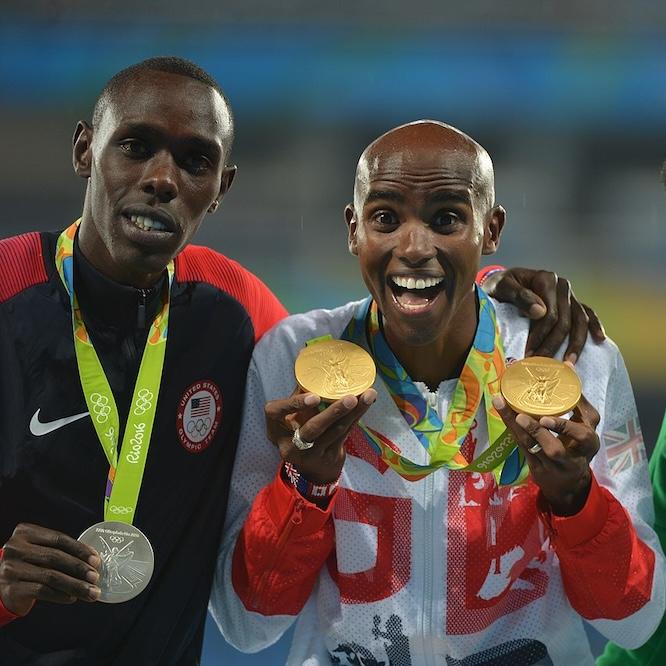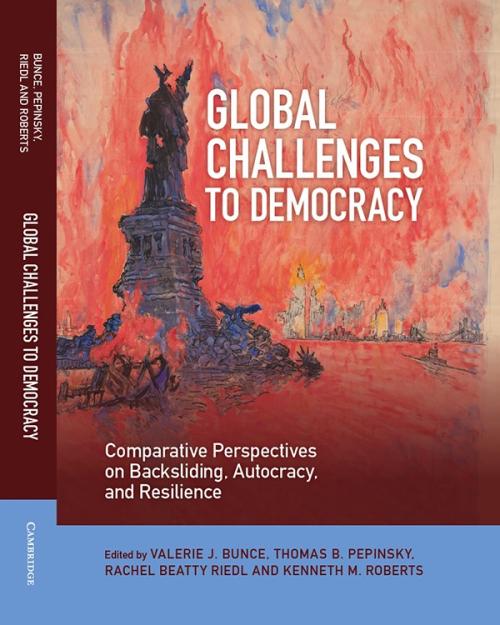Democracy is in retreat across much of the world, and for years Cornell government scholars have been tracking its erosion in various regions – including the United States.
Now they’ve brought these global perspectives on democratic backsliding together in one volume. “Global Challenges to Democracy: Comparative Perspectives on Backsliding, Autocracy, and Resilience,” edited by four Cornell government faculty members and including contributions by several more, examines democratic backsliding and resilience around the world in the 21st century.
Inspired by a 2022 conference hosted by the Mario Einaudi Center for International Studies and the Department of Government in the College of Arts and Sciences (A&S), and related to subsequent conferences in 2024 and 2025, the collection sheds new light on the challenges confronted by democracies in contemporary global politics.
“Although this topic has received a lot of attention in recent years, we were struck by the lack of a comprehensive, global study that provides a comparative perspective on the dynamics of backsliding across different world regions,” said Kenneth Roberts, the Richard J. Schwartz Professor of government (A&S) and one of the book’s co-editors.
“This book aims to fill that gap by helping scholars understand why democracy is in retreat across so much of the world, but also to recognize the bold and creative ways in which political actors and civil society networks are working to defend democracy and make it more resilient in the future,” said Roberts, the former faculty lead for Einaudi Center democracy research.
The other co-editors are: Valerie J. Bunce, the Aaron Binenkorb Professor of International Studies Emerita; Thomas B. Pepinsky, the Walter F. LaFeber Professor of government; and Rachel Beatty Riedl, professor of government and Peggy J. Koenig '78 Director of the Center on Global Democracy in the Cornell Jeb E. Brooks School of Public Policy.
Contributing chapters were A&S faculty members David Bateman, associate professor of government; Mabel Berezin, Distinguished Professor of Arts & Sciences in Sociology; Bryn Rosenfeld, associate professor of government; and the late Nicolas van de Walle, the Maxwell M. Upson Professor of Government. Also contributing were past and present Cornell government doctoral students, including Jaimie Bleck, Ph.D. ’11, Frances Cayton and Aaron Childree, as well as scholars from other institutions.
The Department of Government has a strong concentration of faculty with expertise in the study of democracy and its discontents, Roberts said. The four co-editors specialize in different world regions – Russia and Eastern Europe (Bunce), Southeast Asia (Pepinsky), sub-Saharan Africa (Riedl) and Latin America (Roberts) – and all were heavily involved in the study of transitions to democracy in these regions in the late 20th century, a high point of the post-Cold War democratic wave.
"In each of the regions that we study, the signs of democratic backsliding are unmistakable," said Pepinsky. "In my own case, I have studied Indonesia's democratic transition and consolidation for twenty years, and I have seen the hard-fought gains of Indonesian democratization slowly eroding under popularly elected presidents. Seeing these trends, alongside the challenges of democratic consolidation in the Philippines and Thailand, has led me to ask what I can learn from my colleagues who have studied similar processes elsewhere."
“Our edited volume is an explicit effort to apply some of the lessons we learned from the study of democratization to help understand the opposite trend line – the dynamics of democratic erosion over the past 10 to 15 years,” Roberts said. “The book includes case studies from all of these major world regions, as well as the United States.”
The first part of the book examines institutional dimensions of democratic backsliding and resilience. Part II examines democratic struggles in different social spheres, including civil society, social media and political messaging. Part III examines regional and international dimensions of the rise of the populist radical right and the challenges it poses to democracy in Europe and beyond.
Although backsliding is a serious challenge, it’s not an inevitable outcome, Roberts said. The contributors to this book point out ways in which everyday citizens, social movements and institutional actors contest the efforts of autocrats to concentrate power.
“There are courageous efforts not only to defend democracy, but to make democracy more meaningful and responsive to citizens, and these efforts take place in numerous sites, from the voting booth to the streets, and from workplace settings to the federal courts and the halls of Congress,” Roberts said. “Our book is a hard-nosed, realist account of the contemporary challenges facing democracy – but one that is grounded in the belief that by better understanding the nature of the threats, democratic citizens can more effectively resist and counter them.”




